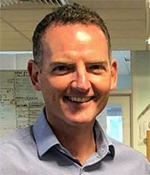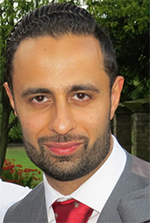Video of our BJC webinar: ‘Haemorrhage with anticoagulants: risk reduction and reversibility’
Healthcare professionals are invited to watch our video where our expert panel discuss risk reduction and reversibility in haemorrhage with anticoagulation. This is a recording of a webinar which took place on 20th July 2021. Please note CPD points were awarded for watching the live event. We are unable to offer CPD points post-event so there is no longer a CPD feedback form underneath the viewing window.
Learning objectives
- An assessment of the most common types of life-threatening bleeds requiring immediate emergency treatment
- Life-threatening bleeds related to direct-acting oral anticoagulants (DOACs) and their reversal – overview of clinical guidelines for treating FXa inhibitor-related major bleeds
- Factor Xa reversal in intracranial haemorrhage
- Gastrointestinal bleeding, diagnosis and treatment
Is it for me?
This webinar was aimed at all grades of healthcare professionals treating cardiovascular patients, particularly those in cardiology, haematology, care of the elderly, general medicine, general practitioners, clinical pharmacists and allied disciplines.
The sponsor had no influence over the content or selection of speakers for the program
Chair:
Dr Laura Hunter
Consultant Emergency Medicine & Clinical Toxicology
Laura Hunter is a Consultant in Emergency Medicine and Clinical Toxicology at Guy’s and St Thomas’ NHS Foundation Trust, London. She completed Emergency Medicine Higher Specialist Training in Merseyside Deanery, prior to her move to London in 2010. Special areas of interest include recreational drug toxicity, Inclusion Health and the development of Routine Blood Borne Virus screening within the Emergency Department.
Speakers biographies:
Dr Sara Boyce
Consultant Haematologist, University Hospital Southampton NHS Foundation Trust
Sara Boyce is a consultant haematologist who joined the Trust in 2014. She’s clinical blood transfusion lead for the Trust, as well as haematology lead for the perioperative (during surgery) anaemia group.
Dr Boyce’s specialist interest is in blood clotting disorders. She’s a member of the thrombosis committee and haemostasis and thrombosis steering group. She has weekly specialist clinics for bleeding disorders and haemophilia, platelet disorders, thrombosis, and general (non-malignant) haematology.
Dr Alexander (Ander) Cohen
Consultant Physician and Epidemiologist, Guy’s and St Thomas’ Hospitals NHS Foundation Trust and King’s College London
Ander Cohen is a consultant physician and epidemiologist at Guy’s and St Thomas’ Hospitals NHS Foundation Trust and King’s College London. He is involved in designing, managing, and analysing clinical trials from phase I to IV, and in international steering committees for multicentre trials. His main interests continue to be in the screening for and the prevention of vascular disease. He specializes in the primary and secondary prevention of cardiovascular disease, prevention of stroke and coronary artery disease, and prophylaxis and treatment of venous thromboembolism (VTE). He has participated in cardiovascular clinical trials for low-molecular-weight heparins, factor X inhibitors such as pentasaccharides and oral agents including the DOACs (NOACs), parenteral and oral thrombin inhibitors, and thrombolytic, antiplatelet, and lipid-lowering drugs. He is currently investigating the use of FXI inhibitors and also AI in VTE and AF.
Dr Adrian Parry-Jones
Consultant Vascular Neurologist, Salford Royal NHS Foundation Trust
Adrian Parry-Jones trained in Medicine at the University of Manchester and was awarded an MRC Clinical Research Training Fellowship (2003-06) to undertake his PhD. Alongside his clinical training in Neurology and Stroke Medicine, he continued to develop his research interests as an NIHR Clinical Lecturer (2009-14). He has been a Consultant Neurologist since 2014 and held an NIHR Clinician Scientist Award from 2015-20. He is currently supported by a Stroke Association Margaret Giffen Reader Award (2020-24) to pursue a programme of research aimed at improving outcomes for those affected by intracerebral haemorrhage.
Dr Vinay Sehgal
Consultant Gastroenterologist, University College London Hospitals NHS Trust
Vinay Sehgal is a consultant gastroenterologist and interventional endoscopist at University College Hospital London. He graduated from The University of Liverpool in 2007 and completed his specialist training in gastroenterology in North East London. During this time, he completed his PhD at University College London where he developed a novel tumour model of oesophageal cancer used in crucial mechanistic, imaging and pre-clinical studies.
He has a specialist interest in the early detection of pre-malignant lesions of the upper GI tract with particular expertise in artificial intelligence-based classification systems to improve lesion recognition of Barrett’s-related neoplasia. He also has a specialist interest in advanced endoscopic therapy for benign and malignant disorders of the upper GI tract. He regularly presents at international meetings and has published numerous original manuscripts and reviews in this field.





